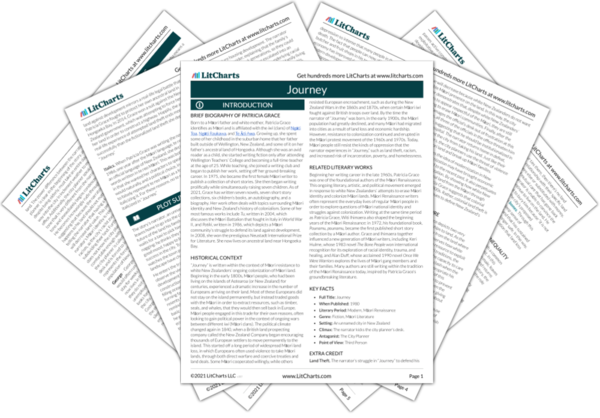AI ToolsNew
Tools to make learning and teaching easier
|
Previous
The Narrator
|
The City Planner Character Analysis |
Next
George
|
They’d be given equivalent land or monetary compensation of course.
But where was the sense in that, there was no equal land. If it’s your stamping ground and you have your ties there, then there’s no land equal, surely that wasn’t hard to understand.

Unlock explanations and citation info for this and every other Journey quote.
Plus so much more...
Get LitCharts A+
They’d be given equivalent land or monetary compensation of course.
But where was the sense in that, there was no equal land. If it’s your stamping ground and you have your ties there, then there’s no land equal, surely that wasn’t hard to understand.

Unlock explanations and citation info for this and every other Journey quote.
Plus so much more...
Get LitCharts A+